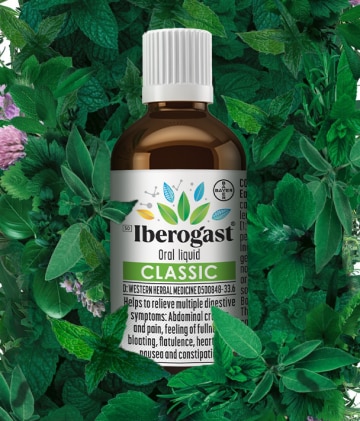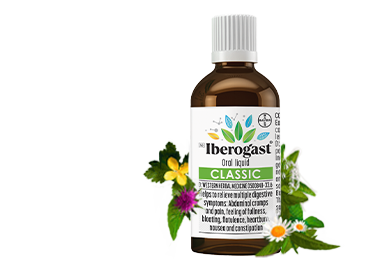Lemon balm leaves (Melissae folium) – liquid gold that calms the stomach
Lemon balm has numerous effects in the gastrointestinal area: On the one hand, balm leaves relax and soothe spasms thanks to its anti-spasmodic and soothing ingredients. Furthermore, lemon balm is gastro-protective and its active ingredients contribute to its anti-inflammatory effect.
Additionally, antiviral activity against Herpes simplex virus has been shown.
Lemon balm’s origin and uses
As early as in the Antiquity were lemon balm leaves (melissae folium) known as an aid against complaints such as stomach and heart disease as well as nervousness. But it was the zesty lemon fragrance that brought the medicinal plant its name - lemon balm.
Bees love this aroma and buzz around the lemon balm’s small white flowers – to extract the nectar and produce highly aromatic honey. Humans, on the other hand, most often reach for the leaves – lemon balm can be used to increase the fragrance of salads, sauces and pasta dishes. Some even use them in preserves.
But it was the monks in the Middle Ages who started brewing wines and liquors from the lemon balm’s pointed, heart-shaped leaves – mainly as a digestive remedy. Because of its multiple healing effects, the lemon balm plant (melissa officinalis) had to be grown on a decree of Charlemagne in every convent garden in Europe in the Middle Ages. At that time, the essential oil of the lemon balm, which is obtained from the leaves, was also sometimes described as “liquid gold” due to its high cost.
Nowadays lemon balm is still used to relieve GI symptoms.
Besides, lemon balm is also particularly popular in cases of nervousness: it has a soothing effect, relieves insomnia and the feelings of tension and thus can prevent these feelings from further exasperating any digestive issues.
How can lemon balm help your gut?
Lemon balm leaves are used in the extraction of essential oils. These extracts contain multiple helpful chemicals like tannins, which may be responsible for the antiviral effects prescribed to the plant. The oils also include terpenes, which are thought to be the primary source of the herb's relaxing effects. Eugenol is another active ingredient of melissa, which calms muscle spasms, numbs tissues, and kills bacteria.
These substances may be effective in the treatment of gastrointestinal bloating and flatulence due to their spasmolytic mode of action. Furthermore, within Iberogast® lemon balm and the active compounds of eight additional medicinal herbs help tonicize gastrointestinal muscles in the lower stomach, are anti-inflammatory and help protect the intestinal mucosa.
At a glance: This is how the lemon balm leaves contained in Iberogast® work
The following table shows the different active benefits of lemon balm leaves in Iberogast®:
| Active benefits of lemon balm leaves in the frame of irritable stomach | |
| Activation of the musculature in the lower stomach | |
| Relaxation of the musculature in the upper stomach | |
| Anti-inflammatory | |
| Regulation of acid production | |
| Protection of the mucosa |
Legend:
| Light Impact | Medium Impact |
High Impact |

Interesting facts about lemon balm leaves
Did you know, that:
- …lemon balm originated in the eastern Mediterranean region? In the Middle Ages, monks brought the precious plant into German monasteries, from where it quickly spread throughout the country.
- …it is grown mainly in England, Eastern Europe, America and Asia and the leaves are often used for medicinal purposes?
- …the up to 70 centimeters high lemon balm prefers to grow in a wind-protected and sunny position and needs a lot of moisture?
- …the word "melissa" can be translated as "honey bee"? Derived from the Greek, “meli” means “honey”. Lemon balm leaves look attractive to bees because of their strong lemon scent. Therefore, lemon balm is also grown as a bee willow plant.









